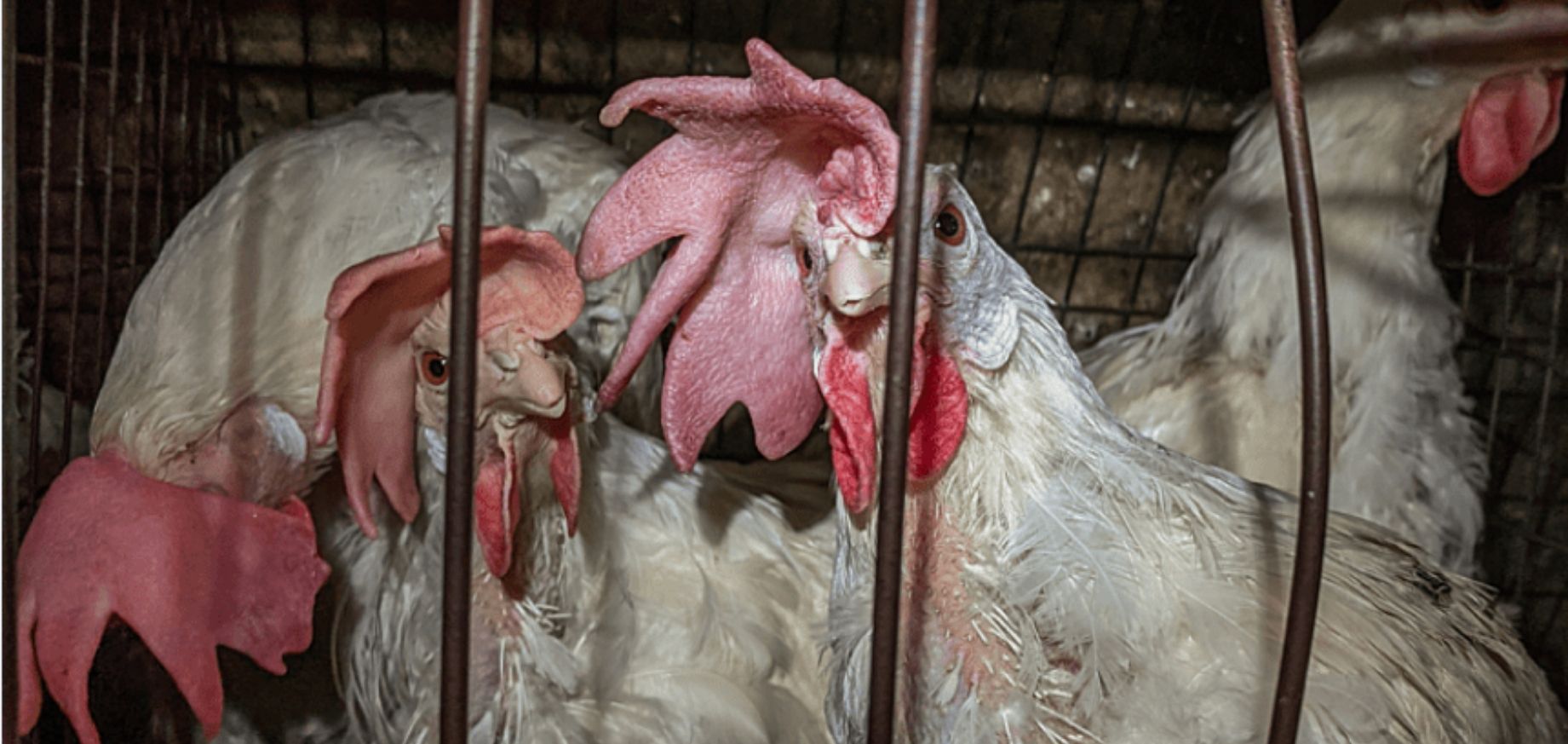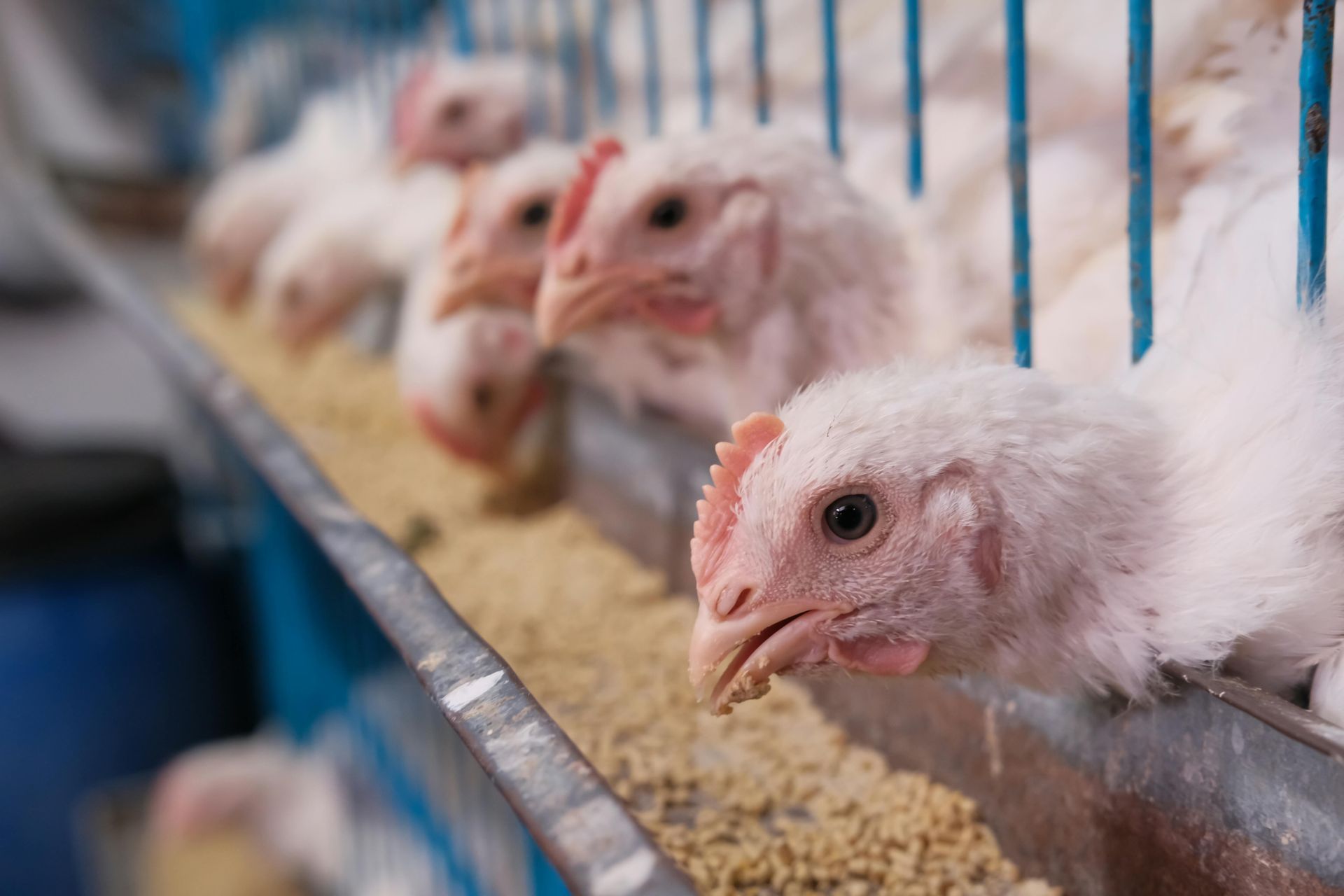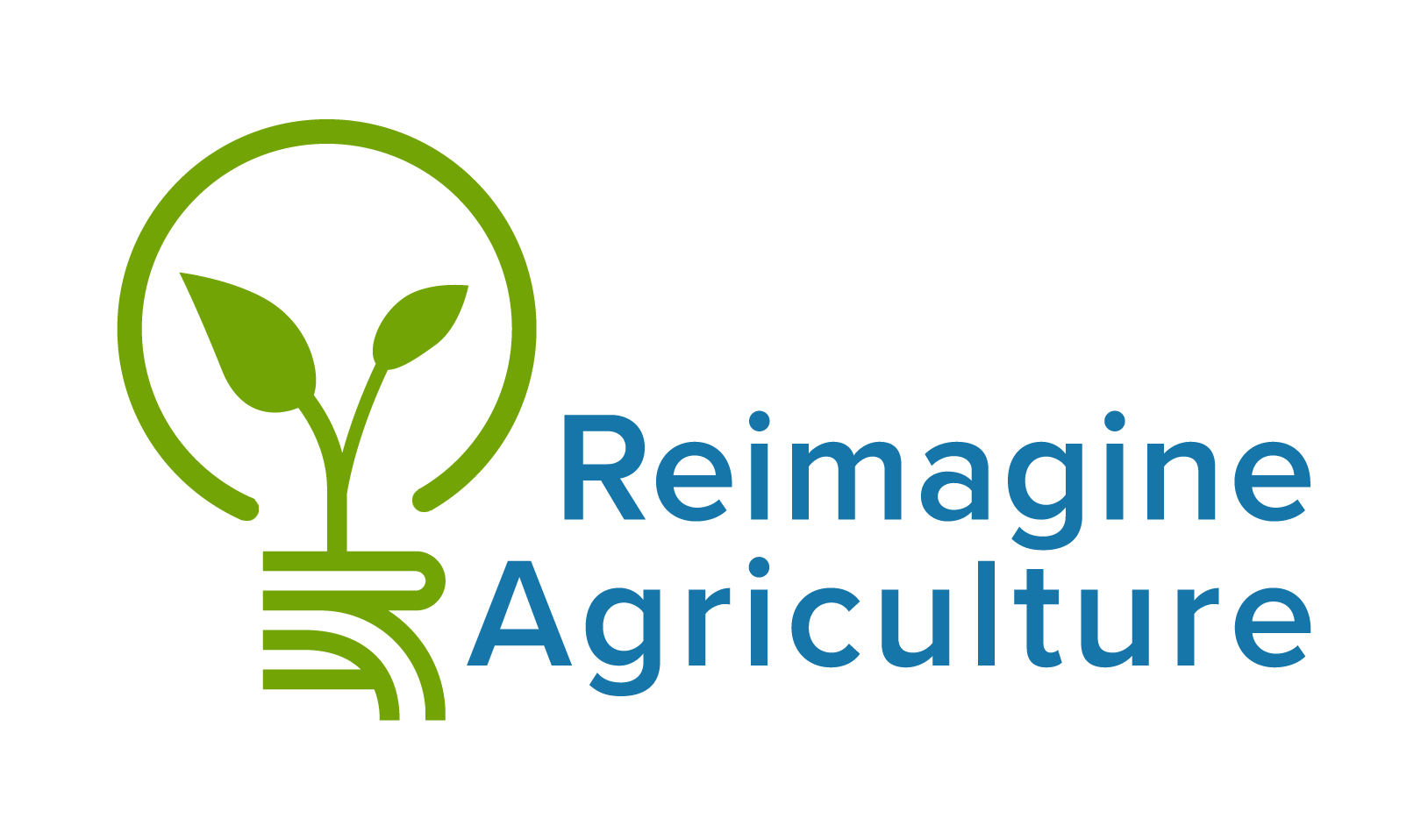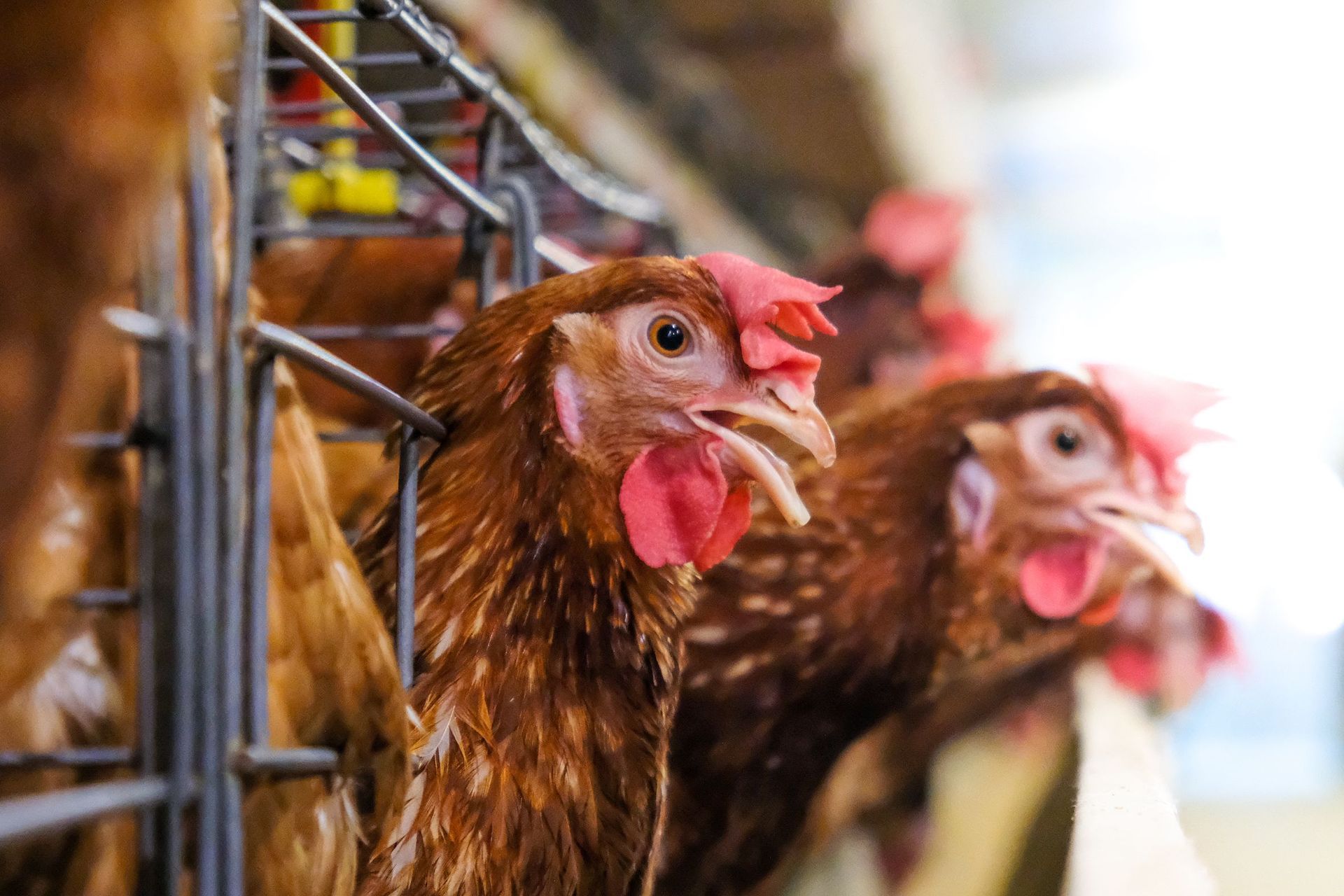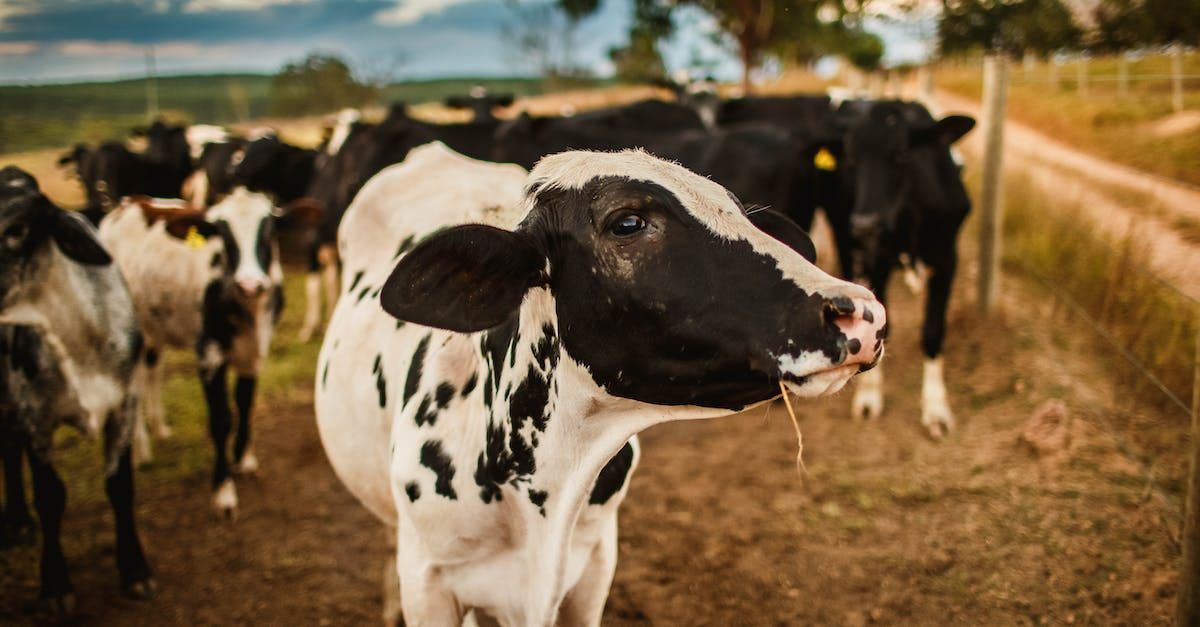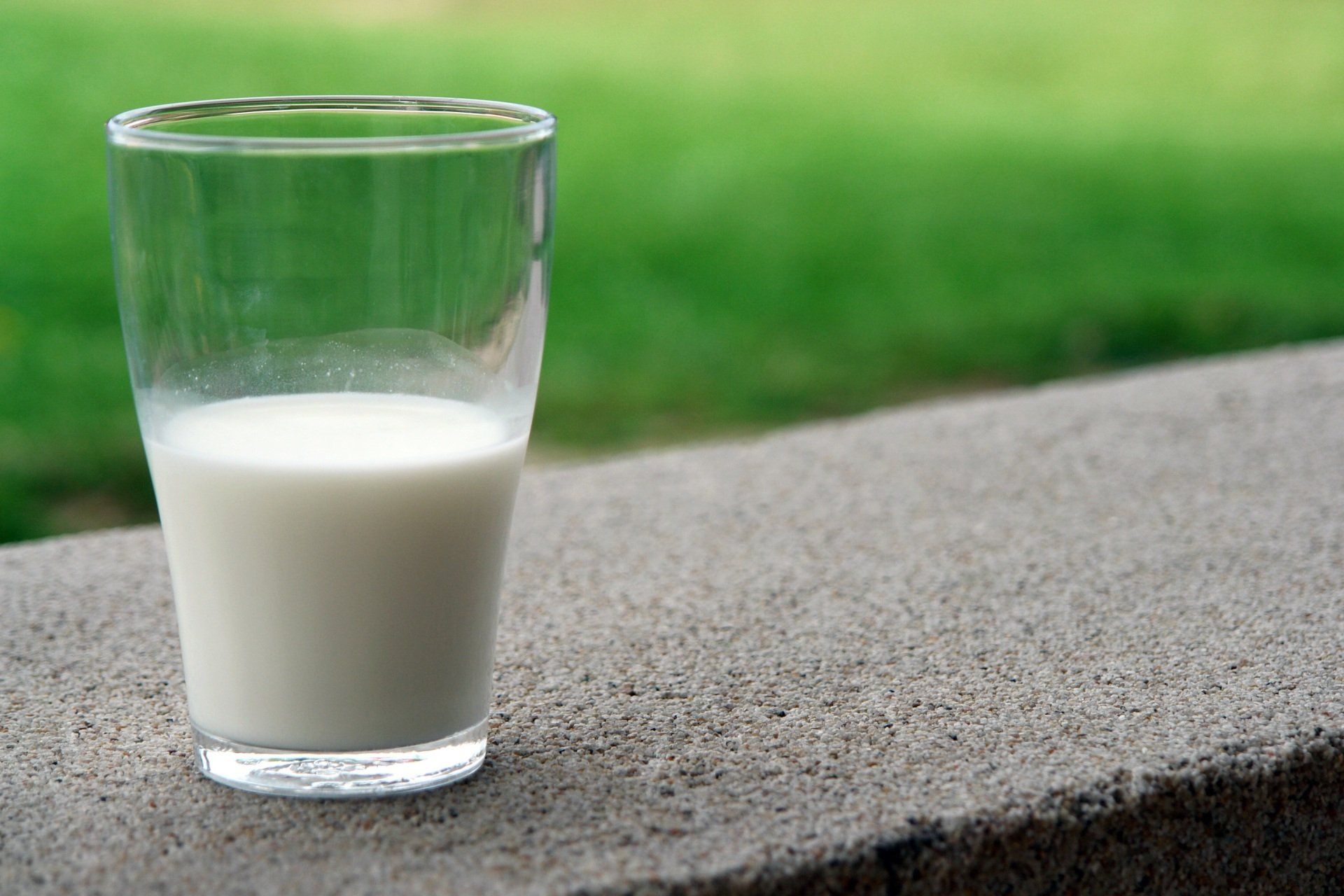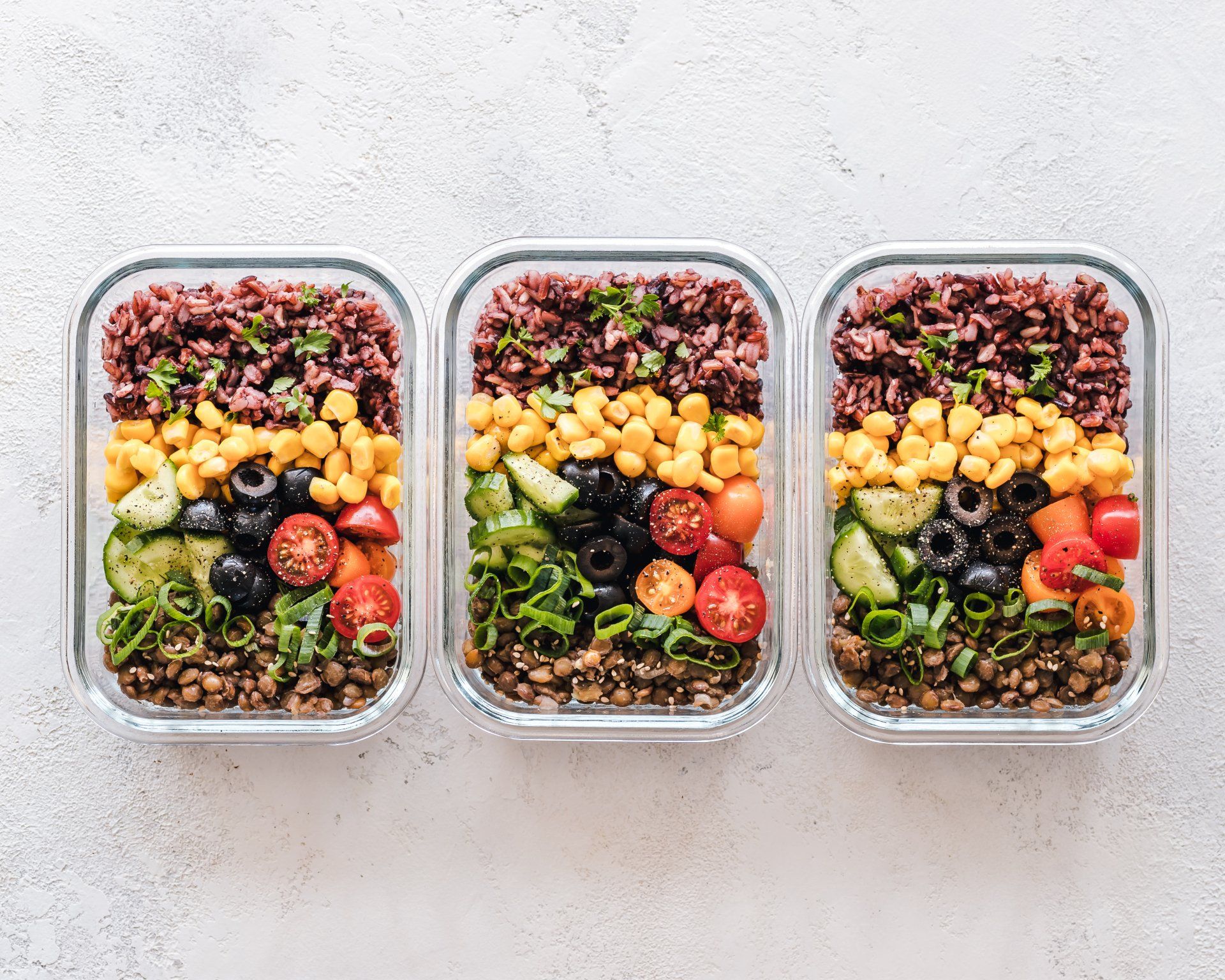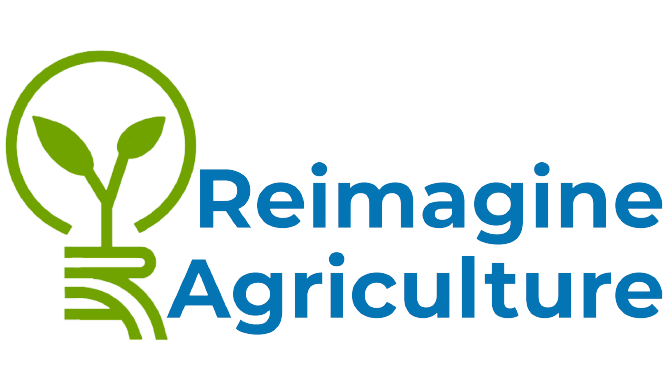Green Diet, Calm Mind: Managing Climate Anxiety Through Food
Does the constant noise of the climate crisis leave you feeling powerless? Are you haunted by the idea that there’s little you can do to make a difference? Well, you are not alone in these sentiments. In fact, in an international study of 10,000 youths aged 16-25, 59% stated they are worried or extremely worried about climate change. More dishearteningly, more than 45% said their feelings about climate change negatively affected their daily life and functioning.

Chart representing the 10,000 surveyed youth and how they feel about climate change.
Courtesy of Haley Rush, CBS News. Source: The Lancet Planetary Health
Climate change has become an inescapable reality. From devastating wildfires and prolonged droughts to rising sea levels and rampant biodiversity loss, its far-reaching impacts are felt around the world. Making choices like taking public transportation, selecting sustainable products, and reducing energy usage can empower individuals, inspire them to join a broader movement, and help alleviate anxious feelings about the climate crisis. However, there is often one overlooked aspect of personal choice that holds remarkable potential for change— for the environment, individuals and even societal norms.
Did you know that what you put on your plate directly affects the environment and climate? The typical omnivore diet in North America and other wealthy countries carries a substantial environmental footprint. By embracing a plant-based diet, you can reduce your carbon footprint, improve your health and take meaningful steps toward protecting the environment.
Many people have switched to plant-focused eating— sales of plant-based meat substitutes were forecasted to reach US$ 148.9 million by this year in Canada, up more than $40 million from 2019. Change is here, and it's time to make choices that align with a sustainable future for our planet.
With that in mind, let’s delve into the impacts of conventional animal agriculture and how a plant-focused diet can empower you and those around you, help the environment, and relieve those feelings of climate despair.
What is Climate Anxiety?
Climate anxiety, or eco-anxiety, is not a new concept— yet it has become more prevalent over the last decade. Climate anxiety is the distress associated with climate change and its impact on the environment and human existence. Research on the topic has identified two subscales of climate anxiety: cognitive-emotional impairments— including rumination, persistent worrying, difficulty sleeping or concentrating, nightmares or crying— and functional impairments— reflecting daily functioning, like difficulty engaging in work, school, or relationships due to climate anxiety. Climate worry is another related concept, but this is not the same thing as anxiety— many people, myself included, worry about climate change— but it only becomes a problem when it affects daily functioning.
Climate anxiety is increasing because of the inaction of global progress to step up and address the climate crisis systemically. As individuals, our collective actions— such as going plant-based— can lead to meaningful change.
Your Diet And Its Impact On The Environment
Our current agricultural system cannot continue to feed our growing population without placing enormous stress on the earth and its resources:
- Our current food system accounts for 26% of global anthropogenic GHG emissions, with farming accounting for 60% of GHG emissions
- Out of the 71% of habitable land on the earth, 46% is used for agriculture, compared to the 1% that comprises urban and built-up land
- 77% of this agricultural land is used for livestock grazing and animal feed production, yet animal foods produce only 18% of the world’s calorie supply and 37% of total protein
- 72% of global freshwater withdrawals are from animal agriculture
- Agricultural expansion accounts for 90% of global deforestation, with livestock grazing representing 38.5% and cropland at 49.6%
Our food system relies heavily on conventional agricultural practices, but these are destroying our planet and creating irrevocable damage. Intensive animal agriculture can create a cascade of effects, from the release of GHG emissions and the clear-cutting of forests for livestock grazing or crop production, which significantly impacts ecosystems, biodiversity, ecological resilience, and the ability of the environment to absorb and store carbon dioxide. It’s an unsustainable cycle that poses a long-term threat to the health of our planet.
It’s increasingly evident that a shift in our diet is needed to create change. By embracing a plant-focused diet, we can break this cycle, substantially reduce our carbon footprint, and inspire a societal shift towards a sustainable lifestyle.
Breaking The Cycle With A Plant-based Diet
A plant-based diet centers on consuming foods primarily sourced from plants, such as fruits, vegetables, legumes, nuts, seeds, and whole grains. Some people adopt strict diets, while others might include small amounts of animal products.
Adopting a plant-based diet is beneficial for your health and the environment. Whereas beef production can release 35.5 kg of GHG emissions per 100 grams of protein (even up to 105 kg of CO2 equivalents), tofu— a complete protein and excellent source of nutrients— only produces 2 kg of GHG emissions for the same amount.
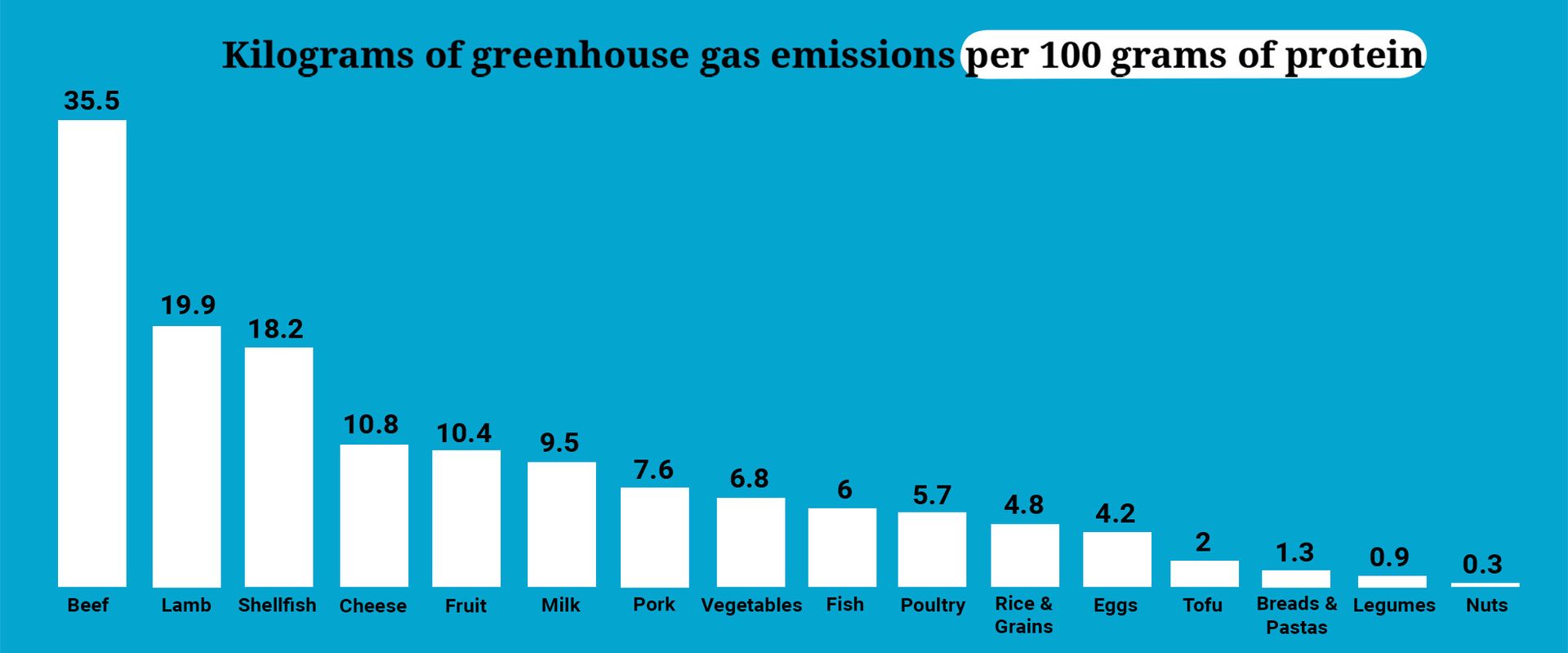
Comparison of plant-based foods vs meat, dairy, and fish. Emissions are measured in kilograms of carbon
dioxide equivalents, kgCO2eq, which takes into account all greenhouse gases.
Source: UN Food and Climate Change
Production of plant-based foods generally requires less water, land, and energy than production of animal-based foods. Crops grown for human consumption only take up 23% of agricultural land. This relatively small area of land is capable of producing the majority of the world’s calories (82%) and protein (63%) that people get from plant-based foods. Compared to meat-heavy diets (more than 100 g per day), vegan diets resulted in:
- 75% less land use;
- 54% less water use;
- 66% less biodiversity loss
From an environmental perspective, a vegan diet that includes no animal products has the least impact on the environment, yet just lowering meat consumption can also greatly benefit the environment. A low-meat diet, at less than 50 grams a day, emits ~70% less GHG emissions compared to high-meat diets.
Enjoying more plant-based foods also has many health benefits. Plant-focused eating may lower body mass index, blood pressure, cholesterol and HbA1c levels. Many people are joining the growing movement towards sustainable living and choosing these dietary changes to reduce their environmental impact.
How Can A Plant-based Diet Help With Climate Anxiety?
We can't single-handedly halt the 33,300 km of forests that are clear-cut every year or directly influence how our world leaders will react to IPCC Reports. But we can control what we put on our plates—and we know by now that what we eat significantly impacts the environment. Shifting to a plant-based diet is one of the solutions that individuals can take full ownership of. This empowerment is not only beneficial for your well-being, but it also motivates you to take proactive steps.
Engaging in personal climate actions, like going plant-based, may lead to higher engagement in climate activism. When we adopt a plant-focused diet and realize its positive impact on the environment, we will want to see this shift in those around us. This encourages us to be vocal about climate issues and can lead us to partake in climate activism, such as campaigning, joining a protest, or organizing a petition. Our efforts can create enough momentum to drive a societal shift that can pressure our leaders to adopt climate-focused policy.
Participating in collective action may even reduce feelings of helplessness and foster feelings of hope. The community connection and social support people get from engaging with others can support health and well-being. These increased feelings of social connectedness with others who share your values and goals can help mediate the effects of climate anxiety.
Taking Action And Advocating For Change
It's important to recognize that the responsibility for creating a sustainable food system doesn't fall solely on the shoulders of individuals. But, adopting a plant-based diet is a meaningful step toward the broader transition to a sustainable and climate-friendly food system. By doing so, we can collectively shift societal norms, create increased momentum to gain the attention of policy-makers and producers and influence the direction of our agricultural practices and food production methods to align with the needs of present and future generations. This is why supporting the growth of plant-focused diets and promoting cultivated meat is important at Reimagine Agriculture. We believe these sustainable and ethical alternatives can positively impact the environment, animal welfare, and human health.
Taking meaningful actions, such as transitioning to a plant-based diet, is a vital part of addressing climate anxiety and contributing to a sustainable future. Engaging in individual and collective actions is helpful to regulate climate-related worries. Your choice to adopt a plant-based diet has a positive impact on the environment, the animals saved, and your well-being. Your worries may persist but know that you are doing all you can to create a sustainable future for yourself and the planet.
Here are other avenues of action you can take to help reduce your climate anxiety:
- Talk to somebody. If climate anxiety is affecting your life, it's worth talking to close friends and family or seeking professional support. They can help you navigate your emotions, explore coping strategies, and find ways to positively channel your concerns into actions that benefit your well-being and the planet.
- Be a plant-based advocate. Encourage others to consider adopting plant-based diets. Share your experiences, motives, recipes, and tips for making the transition smoother. Your journey can inspire and guide others on a similar path.
- Push for Change in Your Community: Advocate for plant-based options in local schools, universities, and workplaces. Engage with campus dining services, student organizations, or community groups to promote sustainable food choices.
- Join or Support Climate Activism: Consider joining climate activism groups or initiatives at your university or community. By taking part in collective action, you can magnify your impact, influence broader change, and feel more connected to like-minded individuals.
- Educate Yourself: Stay informed about the latest developments in sustainable agriculture, plant-based diets, and climate solutions. Knowledge is a powerful tool for advocacy and personal growth. Subscribe to our newsletter for more information on how you can take actions to reform our food system and heal our planet!
- Engage with Reimagine Agriculture! We are always looking to hear stories about people's shift to a plant-based diet. Follow us on Instagram for updates on our campaigns and how you can get involved.
